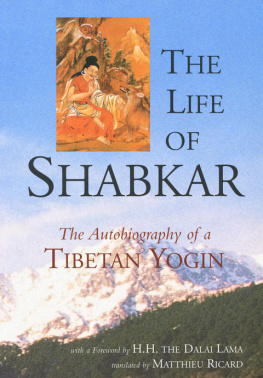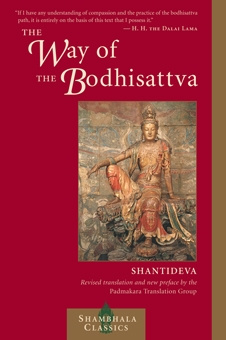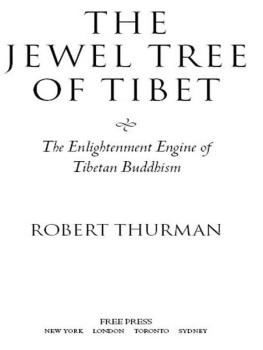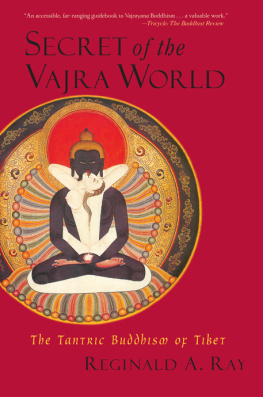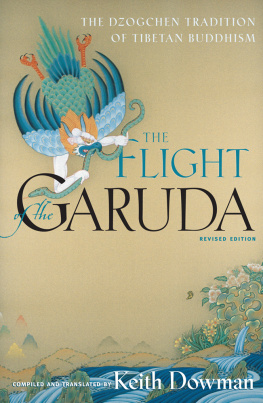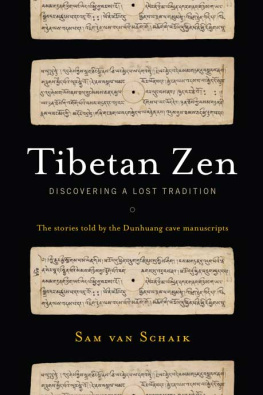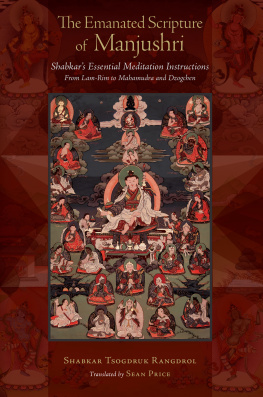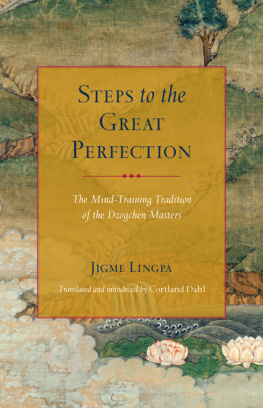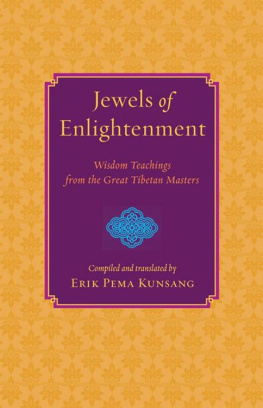Regarded by many as the greatest yogi after Milarepa to gain enlightenment in one lifetime.... A source of inspiration to Buddhist practitioners and general readers alike.
H.H. the Dalai Lama
This thorough, well-conceived edition of an important text will be welcomed by scholars and serious practitioners of Buddhism.
Library Journal
ABOUT THE BOOK
The Life of Shabkar has long been recognized by Tibetans as one of the masterworks of their religious heritage. Shabkar Tsogdruk Rangdrol devoted himself to many years of meditation in solitary retreat after his inspired youth and early training in the province of Amdo under the guidance of several extraordinary Buddhist masters. With determination and courage, he mastered the highest and most esoteric practices of the Tibetan tradition of the Great Perfection. He then wandered far and wide over the Himalayan region expressing his realization. Shabkar's autobiography vividly reflects the values and visionary imagery of Tibetan Buddhism, as well as the social and cultural life of early nineteenth-century Tibet.
MATTHIEU RICARD is a Buddhist monk who had a promising career in cellular genetics before leaving France to study Buddhism in the Himalayas thirty-seven years ago. He is a best-selling author, translator, and photographer, and an active participant in current scientific research on the effects of meditation on the brain. His many books include Why Meditate?, Happiness: A Guide to Developing Lifes Most Important Skill, and The Quantum and the Lotus. He lives in Nepal and dedicates much of his time to humanitarian projects in the Himalayas through his nonprofit organization Karuna-Shechen (www.karuna-shechen). For more information, visit www.matthieuricard.
Sign up to receive inspirational Tibetan Dharma teachings and special offers from Shambhala Publications.

Or visit us online to sign up at shambhala.com/edharmaquotes.
THE LIFE OF SHABKAR
The Autobiography of a Tibetan Yogin
The King of Wish-granting Jewels That Fulfills the Hopes of All Fortunate Disciples Who Seek Liberation
The detailed narration of the life and liberation of the great vajra-holder Shabkar Tsogdruk Rangdrol, refuge and protector for all sentient beings of this dark age

with a Foreword by
His Holiness the XIVth Dalai Lama

Translated from the Tibetan by Matthieu Ricard,
Jakob Leschly, Erik Schmidt, Marilyn Silverstone, and Ladra Palmo
Edited by
Constance Wilkinson
with Michal Abrams, and other members of the
PADMAKARA TRANSlATION GROUP
Snow Lion
Boston & London
2014
Snow Lion
An imprint of Shambhala Publications, Inc.
Horticultural Hall
300 Massachusetts Avenue
Boston, Massachusetts 02115
www.shambhala.com
Copyright 2001 Matthieu Ricard
All rights reserved. No portion of this book may be reproduced by any means without prior written permission from the publisher.
Library of Congress Cataloging-in-Publication Data
Shabkar Tsogdruk Rangdrol, 17811851
The life of Shabkar : the autobiography of a Tibetan yogin / translated from Tibetan by Matthieu Ricard [et al.] edited by Constance Wilkinson (poetry), with Michal Abrams [et al.]
p. cm.
eISBN 978-1-5593-9874-9
ISBN 13: 978-1-55939-154-2
ISBN 10: 1-55939-154-5
1. Shabkar Tsogdruk Rangdrol, 17811851. 2. LamasChinaTibetBiography. 3. YoginsChinaTibetBiography. I. Ricard, Matthieu. II. Wilkinson, Constance. III. Abrams, Michal.
By His Holiness the XIVth Dalai Lama
The vast religious literature of Tibet can be divided into two kinds of books: those dealing with Buddhist teaching in a technical, analytical way, intended for those who have trained in logic and philosophy, and those which contain advice. The latter category consists of works which present the Dharma in a way that is accessible to people without special training. It includes, on the one hand, books which deal with the Stages of the Path, Mind Training, and so forth, and, on the other, books of an inspirational nature containing the lives of great practitioners, spiritual songs, and so forth. The special quality of these books lies in their universal appeal. The Life of Milarepa and his Hundred Thousand Songs, for example, are treasured in almost every Tibetan household and also would often be the only additional book that meditators took into retreat with them.
I am, therefore, delighted to know that the life-story of another more recent great practitioner, Shabkar Tsogdruk Rangdrol, is also to be published in English. Regarded by many as the greatest yogi after Milarepa to gain enlightenment in one lifetime, he also lived the life of a wandering mendicant teaching by means of spiritual songs. Shabkar is particularly celebrated for the absolute purity of his approach to his lama and his personal practice, which freed him from the snare of sectarianism. He is also affectionately remembered for the kindness of his gently teasing humor.
This work will undoubtedly make a great contribution to the growing store of Tibetan literature translated into English, providing a source of inspiration to Buddhist practitioners and general readers alike. I am glad of this opportunity to express my gratitude and admiration to Matthieu Ricard and other friends who have labored long under expert guidance to produce it.
The autobiography of Shabkar Tsogdruk Rangdrol is one of the classics of Tibetan Buddhist literature and may be counted among the spiritual classics of humankind. Like St. Francis, Jalal-ud-din Rumi, Sri Ramakrishna, or the Hasidim, Shabkar exemplifies through his life and legacy the excellence of a particular religious tradition, while transcending particularity and touching the divine in all.
In Shabkars life and songs, we receive a privileged and intimate view of the world of the Buddhist adept, a world of intense self-discipline, but also of humor, vision and joy. It is owing to these qualities, and the simple yet elegant form in which they are here expressed, that Shabkars work has come to be especially beloved among the people of his native province of Amdo, in northeastern Tibet, who find in these pages a companion offering continual wisdom, solace, and the courage needed to face the trials of life.
The mixed prose and verse in which Shabkars autobiography is written is in some respects reminiscent of the campu style of classical Sanskrit poetry, which influenced Tibetan literature primarily through the Jatakamala of Aryasura, a work with which Shabkar was certainly familiar. Shabkar, however, is no mere imitator of Sanskrit kavya; it is his eschewal, in fact, of literary artifice, in favor of the clear and rich idiom of colloquial speech, folk song and traditional folk oratory, that lends his writing much of its distinctive flavor. Shabkars wit and playfulness, his magnificent flights of imagination, his persistence in exposing all hypocrisythese are the qualities that suffuse his work, overriding the niceties of literary style alone.
The gentle and kind personality illuminating these pages should not, however, be regarded as an airy proponent of love and light, a New Age prophet before his time. Shabkars lightness disguises, to some extent, the intense moral rigor of the ascetical ethos he propounded: Shabkar was an effective apostle of vegetarianism among carnivores, of teetotalism among the lush, of renunciation among the worldly. He wins our respect and sympathy not because we always concur with, much less adhere to, the standard upon which he insists, but because his insistence takes the form not of the moralists harangue but of the songsters jest, and of teaching through his own good example. For above all, Shabkar practiced what he preached.
Next page
